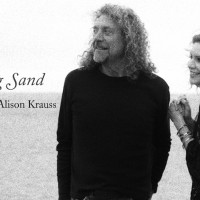Alison Brown is well-known for her prowess on banjo. Yet she started in a different field –graduating from Harvard University and earning an MBA from UCLA before pursuing a career in investment banking. She worked for Smith Barney for two years, until Alison Krauss came calling, persuading her to give up her day job to join Union Station.
Since then, Brown has gone on to carve out a career as one of the country’s foremost banjoists, with sold-out shows across the globe and a dozen recordings to her name. Plus countless appearances on others’ recordings and numerous awards.
Among her many awards is the International Bluegrass Music Association banjo player of the year, the first woman to be so honored. She’s since been joined by several other female winners for other instruments, and she’s become friends with all the First Ladies of Bluegrass: Alison Brown and Missy Raines, the first female to win the IBMA Bass Player of the Year award; Sierra Hull, the first to win the IBMA Mandolin Player of the Year award; Becky Buller, the first woman to win IBMA Fiddler of the Year; and Molly Tuttle, the first female to IBMA Guitar Player of the Year have performed together as a group, as well as guesting on one another’s albums.
Brown also produced Raines’s latest album, Highlander. No surprise there, as Raines is one of the many artists signed to Brown’s label. Compass Records is another hat Brown is proud to wear. The label’s roster now includes Green Linnet, Xenophile and Red House Records, and features more than 1,000 releases.
With all that going on, Brown was kind enough to weigh in on some of the inspirational music that persuaded her to take up banjo in the first place, and presumably to leave the world of finance behind forever:
LESTER FLATT AND EARL SCRUGGS, ‘FOGGY MOUNTAIN BREAKDOWN’ (1949): That was my introduction to banjo. I was taking guitar lessons as a nine-year-old around 1973 and I got the teacher to also do bluegrass banjo. It’s that moment when you first hear it. I loved the sound of the banjo. I wanted to play it. My parents told me if I kept working on guitar, I could do it [play banjo too]. “Earl’s Breakdown” – that tune is my favorite Earl Scruggs tune. I just got to play Earl’s banjo for the Country [Music] Hall of Fame. The Scruggs estate gifted it to the hall of fame collection. That was taking me back to the beginning.
DAVID GRISMAN QUINTET – DAVE GRISMAN QUINTET (1977): That was 1977-ish. Grisman was one of the first to be rooted in bluegrass and take it to a new place, including the Django [Reinhardt] / Stephane Grappelli influence to create “Dawg” music. I was playing a lot with Stuart Duncan. We knew every note. It opened a huge door. I’ve gotten to know all those guys in that band. David Grisman produced my first album. Daryl [Anger], Mike [Marshall], Todd [Phillips] are all friends. They were hanging out, conceptualizing. They were so inspirational. It was a different time in the music industry.
NITTY GRITTY DIRT BAND – WILL THE CIRCLE BE UNBROKEN (1972): For so many reasons. Mother Maybelle Carter, Roy Acuff, Doc Watson, Merle Travis, I don’t think I owned a Jimmy Martin album. I related to where the Dirt Band came from. It was closer to the culture [that I] was from, as an intro to the rural South pre-Depression. It was helpful to have as a guide.
WHAT I’M LISTENING TO NOW: Whatever I’m producing now. Special Consensus, Missy Raines – when you’re a producer you listen to it over and over. Other favorites include Joe Pass. His guitar playing, if someday I could just get a fraction of that fluency, I’d be so happy. Antonio Carlos Jobim, having a rich melody. Robby Fulks is such a great player: Bluegrass Vacation is one of the freshest new bluegrass [albums].
- Jon Anderson, Reza Khan, CSNY + Others: Ross Boissoneau’s Best of 2024 - December 30, 2024
- Tower of Power, Jennifer Hudson, Ben Folds + Others: 2024’s Seasonal Sounds - November 25, 2024
- Dave Bainbridge of Downes Braide Association: The Albums That Shaped My Career - October 9, 2024



